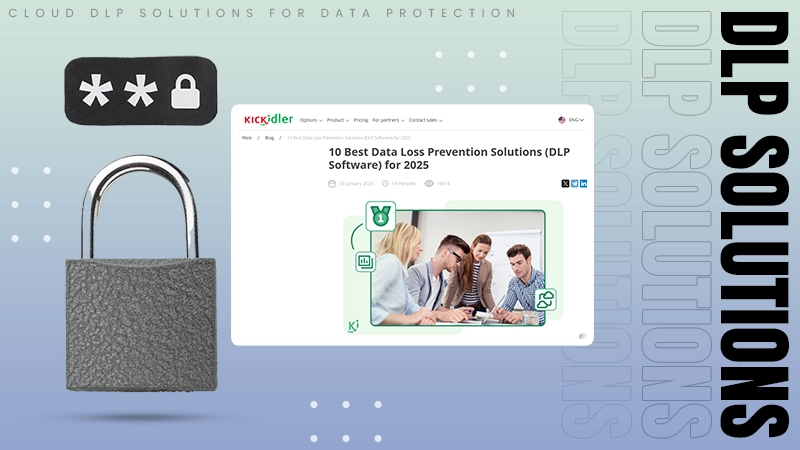The Sales Development Representative’s (SDR) is an essential role within every sales company. The primary purpose of an SDR is to find, identify and qualify leads which ultimately leads to potential opportunities for their sales teams. In focusing on these earlier-stage tasks, SDRs free up experienced salespeople to focus on closing sales.
The presence of an SDR to your team has many benefits. The first is that SDRs have the ability to dramatically boost the quantity of leads they qualify for. Their experience in the prospecting process and lead qualification makes sure that only the best leads are passed to sales representatives which reduces wasted time and money.
Additionally, SDRs can build relationships with potential clients early on in the sales process, creating trust and creating a welcoming greeting for members of the sales staff. Thirdly, SDRs can offer valuable insight into trends in the market and the needs of customers, which can help to guide the product development and sales plans.
Explore Why Your Business Needs a Sales Development Representative
What Does an SDR Do?
A Sales Development Representative’s (SDR) main job is to fill gaps between marketing as well as sales. They concentrate on prospecting outbound and lead qualification inbound to assure that sales personnel engage with prospective clients who are interested in the item or product or. The main responsibilities of the sales team are:
- Prospecting: Searching for and contacting potential clients via various methods like email, phone contacts, online media and events on social networks.
- Qualifying Leads: evaluating the readiness and enthusiasm of potential buyers to purchase. This requires understanding their wants as well as their budgets, process of decision-making and time-frame.
- Meetings and appointments: Scheduling meetings or demonstrations for sales leaders to explore and close deals lead prospects that are qualified.
- Follow-Up: Continually contact leads with email and follow-up calls to maintain relationships, and to ensure that the pipeline of sales is active.
Skills and Attributes of a Successful SDR
In order to be successful to be effective, an SDR must possess a mix of soft and hard skills which include:
- Communicative Skills: The capability to communicate clearly the values and engage in meaningful discussions with prospective customers.
- Competency: In conducting research and identifying possible leads by using different platforms and tools.
- Persistence: It is the determination to keep following up regularly and to overcome any obstacles.
- Technical proficiency: Knowledge of CRM-related software as well as email marketing tools, as well as the social networks.
- Empathy: Recognizing the wants and challenges of prospective customers to serve pertinent solutions.
Benefits of Having a Sales Development Representative
1. Enhanced Lead Generation
One of the main advantages of having a sales Development Representative (SDR) is their capacity to improve lead generation. SDRs are focused on identifying and communicating with potential leads and free sales managers to focus on closing sales. This split of labor guarantees a steady stream of qualified leads through your sales funnel.
2. Improved Lead Qualification
SDRs are essential in determining leads and ensuring that only the best prospects are passed onto Sales personnel. In the process of thoroughly screening leads SDRs aid in reducing the amount of time and money wasted by non-qualified leads. A better lead qualification process enhances the efficiency and effectiveness of sales teams.
3. Increased Sales Productivity
With SDRs taking care of the first phases of sales the sales executive can concentrate only on the things they excel at–closing sales. The specialization pays off in increased efficiency in sales and better efficiency in conversion. Sales managers are able to devote more time to prospects who are qualified, resulting in better results.
4. Faster Sales Cycle
Through streamlining the qualifying and prospecting process, SDRs help accelerate the selling cycle. When qualified leads are readily at hand, sales professionals can help prospects move through the pipeline quicker and result in less time to sell and more rapid the generation of revenue.
5. Scalability
When your company expands as it expands, demand for qualified leads rises. SDRs offer additional the capacity needed to meet this need. With the expansion of the size of your SDR team, you’ll be able to assure the steady supply of leads. This allows the sales team to take on increasing opportunities and boost expansion.
6. Better Market Insights
SDRs operate at the forefront for lead generation as well as qualification. They communicate with prospective customers every day. They obtain unique insight on market trends, consumer requirements, as well as areas for improvements. These data can help be used to inform marketing strategies and development of products, development and the overall strategy for business.
How do you Integrate SDRs to your Sales Method
1. Define Clear Objectives
Prior to integrating SDRs in your sales process it is crucial to set clearly defined goals. Decide what goals you wish to fulfill through the help of your SDR team, for example growing lead generation, enhancing lead qualification or reducing the time to sell. Specific goals will direct your SDRs’ actions and warrant aligning with your overall goals of your business.
2. Develop a Structured Onboarding Process
An organized onboarding process is essential to the growth for the SDR team. Give them a thorough training session regarding your services or products as well as your target market as well as sales procedures and equipment. Make sure that SDRs know their roles and obligations and are armed with the information and talent necessary to function energetically.
3. Implement the Right Tools
The ability to equip the SDR staff with proper equipment is essential for the success of your team. Make investments in CRM software that will handle leads, monitor interactions and evaluate the performance. Use emails as marketing tools for contact and follow-up use social media sites for prospecting. With the right tools, you can increase productivity as well as streamline SDRs workflow.
4. Set Metrics and KPIs
For assessing the effectiveness of your SDR team, you must establish the most important indicator of performance (KPIs) and measures. The most common KPIs for SDRs comprise the amount of leads created and suitable leads that are qualified, the quantity of appointments made, and the conversion rate. Check these indicators regularly to evaluate performance and pinpoint points for improvements.
5. Foster Collaboration Between SDRs and Sales Executives
The collaboration with SDRs and sales managers Collaboration between SDRs and sales managers is vital for smooth sales processes. It is important to assure regular communication and feedback between both teams. Sales managers are able to add important insights about the quality of leads as well as how effective the qualification process is. This will help SDRs improve their methods.
6. Provide Ongoing Training and Development
Sales is a constantly changing field which is why continuous training and development are essential for maintaining your SDR team. Regularly schedule training sessions for innovative sales methods as well as tools and changes. Assist SDRs to participate in seminars, conferences as well as additional well-qualified development occasions.
Conclusion
Integrating Sales Development Representative’s (SDR) to your sales staff can be a significant factor in the performance of your business. In addition to enhancing lead generation and qualifying to increasing the efficiency of sales as well as providing market-related insights, SDRs play a critical part in boosting revenue. Through integrating SDRs into the sales process and providing them with needed tools, knowledge and assistance and training, you will warrant an ongoing flow of qualified leads, and place your company up towards long-term achievement. To find out more details about how SDRs can help your company, Go to website and browse through a wealth of resources as well as strategies.






